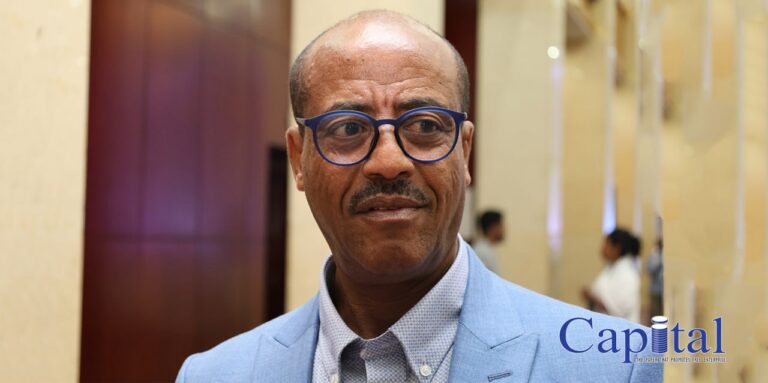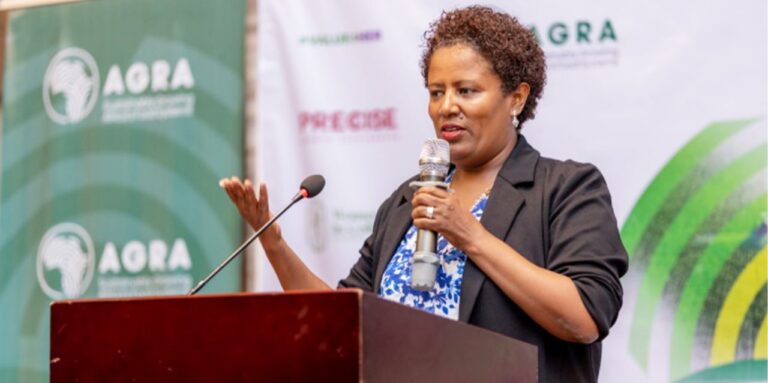In a world increasingly defined by its challenges, the conversation around food sovereignty and sustainable agriculture in Africa has never been more critical. Fassil Gebeyehu, a prominent conservationist and social anthropologist, has dedicated his career to addressing these issues through his role as the General Coordinator of the African Biodiversity Network and as a board member of the Alliance for Food Sovereignty in Africa (AFSA). With a rich academic background, Fassil combines extensive research skills with a deep understanding of the socio-economic dynamics at play in Ethiopia and beyond.
In this interview, we explore the initiatives AFSA is undertaking to promote food sovereignty across the continent, particularly in Ethiopia. We will touch the multifaceted challenges that hinder self-sufficiency in food production, the role of youth in shaping agricultural practices, and how digital technology is being leveraged to enhance agricultural systems. Join us as we gain insights from Fassil on how Africa can harness its rich agricultural potential while addressing pressing issues like climate change and food insecurity. Excerpts;
Capital: What are some of the things that the Alliance for Food Sovereignty in Africa (AFSA) is currently doing in Ethiopia and on the continent?
Fassil Gebeyehu: People who are not self-sufficient in food are dependent on others. AFSA demonstrates that Africa’s food system is valuable and that we can see ourselves as Africans with many experiences on the ground; these experiences remain unrecognized and unknown to the world. To address this, we focus on so-called ecological farming, called agroecology, seed conservation, and nutrition, emphasizing African farming that is not only focused on production but also on the social system. This can prove that all knowledge in this area can serve as an experience for the world.
In this context, the African Community is an organization that works in partnership with a diverse range of civil society organizations to amplify and influence policies globally. AFSA is an organization comprised of African farmers’ organizations, African NGOs, specialized African NGOs, consumer movements in Africa, international organizations, and individuals who support AFSA’s position.
Capital: How are the plans of AFSA being implemented in Ethiopia?
Fassil: It is now a collaborative collective of NGOs across Africa that have formed alliances. In Ethiopia, AFSA is engaged in work regarding biodiversity, geographical agriculture, and the right to self-sufficiency in food. They operate independently, collaborating with the community all over the world. They don’t have their own plans. AFSA is working to amplify these plans and extend them to regional and international organizations.

Capital: What is it that makes Ethiopia unable to feed itself?
Fassil: The problem is multifaceted. If we look at it from the ground up, there are producers and land where food is produced. Similarly, there are policy issues that can help run the food system, as well as societal factors as a whole. There will also be challenges and successes in the interactions among each involved stakeholder. It is not a one-time effort towards self-sufficiency that resolves the food system’s challenges. There may be issues rooted in the past. For example, land in the north may suffer due to unequal distribution of settlements, which relates to policy. As the population in an area increases, the available land shrinks, necessitating the use of more fertilizer to increase production. Therefore, all these problems must be addressed concerning the sovereignty of the supply of seeds that are as sustainable as ever.
If natural fertilizers can be employed using a special type of cultivation method, it is possible to implement this in the agricultural research institutes in the country and enhance productivity without relying on foreign seeds. Thus, to move away from a system that has become accustomed to using chemicals and fertilizers over the past 30 years, it is necessary to transition gradually to existing and new productivity-enhancing technologies. It is not feasible to shift all at once; the mechanism of sustainable ecology that the government must attend to requires a unique approach. These policies should be utilized to support the government and provide alternatives for farmers.
Capital: So, what is Africa’s food sovereignty now?
Fassil: The issue of African food sovereignty is still in question. This means that not only does the direct product have a market system; the farmer must also sell the produce he produces for food and get the support he needs to meet his needs for others. Therefore, the food system from producer to market needs to be streamlined. This requires financial and other support. The current experience in Africa is not entirely clear, but it is not a complete system. However, it can vary in each country.
Capital: The population is increasing exponentially. So, why is it not possible to bring lasting change through indigenous and modern methods? Isn’t the idea that is still being raised just about hope?
Fassil: That’s a very good question. But before I get into the response, it is necessary to take a closer look at the issue. For example, when we ask whether agroecology cannot feed the population relative to what it is now, there is also a lot of question about whether the type of farming that we practice using the chemical fertilizers that we use in modern farming will sustainably feed our people. We can only avoid this by consistently fertilizing. The second point is that the production of natural fertilizer 20 or 30 years ago required a lot of biomass. But now, a lot of things have come up. Fertilizers that are prepared in liquid form and spray form have been introduced and need support. Modern agriculture, which we call the principle of biodiversity in Africa, is not a sustainable option.

Capital: What is the role of the African Youth Summit in addressing this?
Fassil: Farming is related to poverty in Ethiopia. If the youth don’t believe that this sector is the best way to improve their lives, then the future of productivity and thinking about farming will be in trouble. The youth need to learn about agroecology in terms of economic and technological self-sufficiency. This year’s African Youth Summit was held to bring about a change in attitudes. It is intended to focus on the interests of young people from different countries in Africa regarding farming.
This summit will highlight agroecological initiatives implemented by young people across Africa and the importance of agroecology in assuring food sovereignty as well as climate change resilience. It has been a whole year of preparations for this summit, and we are thankful that it is coming through today wonderfully. We have no doubt that agroecology is the future of farming in Africa, and we, the youth, have the responsibility to drive that future.
The AFSA Youth Platform started in 2021 with the main purpose of promoting sustainable youth-led solutions to unemployment, food insecurity, and climate change through agroecology knowledge and practice, as well as advocacy. Our vision is for African youth to be fully and gainfully engaged in agroecology as a sustainable measure to create employment, promote food sovereignty, and enhance climate change resilience. Additionally, we aim for the voice and expertise of African youth to be recognized within policymaking spaces at local, national, and regional levels.
Capital: How far has AFSA gone in terms of digitalization of the agricultural sector?
Fassil: Regarding the use of digital technology in the field, these same members are now in contact with the government and various research institutions. For example, there is Weather Forecast, which has created a link to share information with the community.
We are looking forward to supporting the African food system and bringing experiences to information on how we can move forward. Whether it’s experiences with Africa’s food system or digital technology to come up with solutions and share this information, digital technology is so important that each of the members of the network is determined by the technological capabilities of their respective countries.
Capital: What is the contribution of AFSA to the country’s economy?
Fassil: So far, the work being done by AFSA has been aimed at bringing about a change in the economy. Now, if we adopt modern methods of farming, which have greatly increased yields, it can be to the detriment of nature; this is the main problem. Bringing an economy doesn’t mean sacrificing the future. It shouldn’t destroy the natural resources or resources of tomorrow. So what AFSA is striving to achieve is a gradual shift towards the economy in a way that is natural and sustainable.
At the moment, it is too early for AFSA to provide the support it needs, given the scale of the problem. But as an organization, we believe in always continuing to strive without ceasing.










